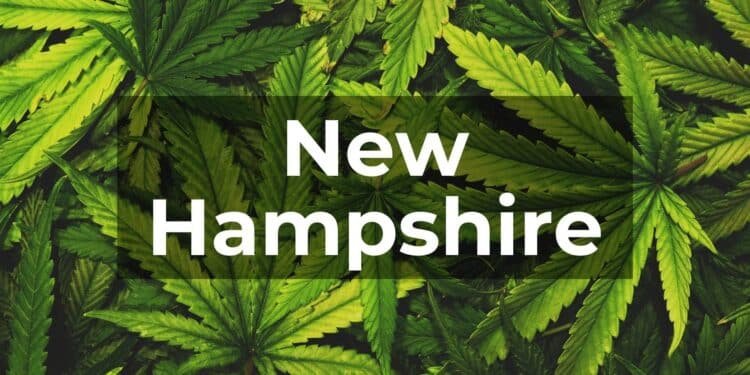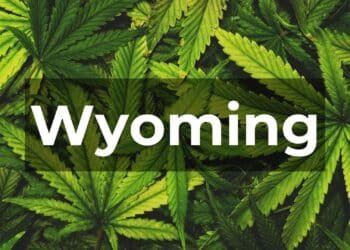Welcome to our comprehensive guide on the current status of marijuana legality in New Hampshire. With changing laws and regulations surrounding cannabis, it can be difficult to keep up with the latest developments. In this article, we will provide an overview of the current state of marijuana laws, regulations, and policies in New Hampshire.
Have you been wondering, “Is Marijuana Legal in New Hampshire?” If so, you’re not alone. Many people are curious about the current laws and regulations surrounding marijuana in the Granite State. From the history of marijuana laws in New Hampshire to the latest updates on legalization efforts, we’ve got you covered. Let’s dive in!
The History of Marijuana Laws in New Hampshire
Marijuana has been a hotly debated topic in New Hampshire for decades. The state has had a tumultuous relationship with the drug, as lawmakers have vacillated between prohibition and decriminalization efforts.
In 2013, Governor Maggie Hassan signed a bill legalizing medical marijuana in the state, making New Hampshire the 19th state in the country to do so. This was a major step forward, as it allowed patients with qualifying medical conditions to use marijuana for therapeutic purposes.
However, recreational use of marijuana remains illegal in New Hampshire, and efforts to legalize it have faced opposition from lawmakers and law enforcement officials.
The Road to Medical Marijuana Legalization
The push for medical marijuana in New Hampshire began in 2009, when lawmakers introduced the first bill to legalize it. The bill faced opposition from then-Governor John Lynch, who vetoed it on the grounds that it would make marijuana more accessible to children and could lead to increased use of the drug.
However, supporters of medical marijuana continued to work on the issue, and in 2013, Governor Hassan signed a bill legalizing medical marijuana in the state. The bill allows patients with qualifying medical conditions to use marijuana for therapeutic purposes, but restricts their access to dispensaries and requires them to obtain a registry ID card.
Recreational Marijuana and Decriminalization Efforts
Although medical marijuana is legal in New Hampshire, recreational use of the drug remains illegal. Efforts to legalize it have been met with resistance from lawmakers and law enforcement officials.
In 2014, New Hampshire passed a law decriminalizing possession of small amounts of marijuana, making it a violation rather than a criminal offense. However, possession of larger amounts of the drug can still result in criminal charges and penalties.
In recent years, there have been renewed efforts to legalize recreational marijuana in New Hampshire. However, these efforts have faced opposition from lawmakers who argue that it could lead to increased drug use and public safety concerns.
Conclusion
Overall, the history of marijuana laws in New Hampshire has been tumultuous and filled with controversy. While medical marijuana is now legal in the state, recreational use of the drug remains prohibited. Efforts to legalize it have been met with opposition, but advocates continue to push for reform.
Medical Marijuana in New Hampshire
Medical marijuana is legal in New Hampshire, but only for a limited number of medical conditions recognized by the state. Patients with qualifying conditions can apply for a medical marijuana ID card.
New Hampshire’s medical marijuana program is tightly regulated. There are only a limited number of licensed dispensaries in the state, and patients must purchase their medical marijuana from one of them. The state also requires dispensaries to test all marijuana products for potency and contaminants.
Qualifying conditions for medical marijuana in New Hampshire include:
| Medical Condition | Description |
|---|---|
| Cancer | Any stage |
| Glaucoma | Elevated intraocular pressure with characteristic optic nerve damage |
| HIV/AIDS | Positive status for HIV/AIDS with associated or complicating condition |
| Hepatitis C | Chronic infection |
| Amyotrophic Lateral Sclerosis (ALS) | Motor neuron disease |
| Multiple Sclerosis (MS) | Relapsing or remitting form of multiple sclerosis |
| Parkinson’s Disease | Progressive disorder of the nervous system |
| Spinal Cord Injury with Spasticity | Damage to the spinal cord with spasticity |
| Epilepsy/Seizures | Uncontrolled or intractable epilepsy |
| Chronic Pain | Severe pain that has not responded to other treatments or therapies |
| Other Conditions | Other conditions approved by the state Department of Health and Human Services |
Patients must have a certified doctor complete a medical marijuana certification form for their condition. Once the form is completed, patients can register with the state and receive their ID card to purchase medical marijuana.
Possession Laws in New Hampshire
New Hampshire has some of the strictest marijuana possession laws in the country. Possession of any amount of marijuana is a misdemeanor offense, punishable by up to one year in jail and a fine of up to $2,000. Subsequent offenses carry more severe penalties, including increased fines and potential felony charges.
If you are found in possession of less than three-quarters of an ounce of marijuana for the first time, you may qualify for a conditional discharge program, which allows you to avoid a criminal record if you complete a substance abuse assessment and comply with any recommended treatment.
However, it is important to note that possession of any amount of marijuana is still a criminal offense in New Hampshire. Even if you have less than three-quarters of an ounce and can avoid a criminal record through the conditional discharge program, you can still face administrative penalties such as loss of driving privileges.
If you are facing possession charges in New Hampshire, it is crucial to consult with an experienced criminal defense attorney who can help protect your rights and advocate for the best possible outcome in your case.
Marijuana Legalization Updates in New Hampshire
Despite efforts to legalize marijuana in New Hampshire, it remains illegal for recreational use. However, the state has made progress in recent years regarding medical marijuana, decriminalization, and industrial hemp.
Legislative Efforts
The New Hampshire legislature has introduced several bills in recent years aimed at legalizing recreational marijuana. In 2019, House Bill 481 passed the House of Representatives but was ultimately defeated in the Senate. However, lawmakers continue to push for legalization, with several bills currently under consideration.
Public Opinion
Public opinion on marijuana legalization in New Hampshire has shifted in recent years. A 2020 poll by the University of New Hampshire Survey Center found that 68% of residents support legalizing marijuana for recreational use. This is a significant increase from 2018, when a similar poll found that only 53% supported legalization.
Law Enforcement
Despite changing attitudes among the public and lawmakers, law enforcement officials in New Hampshire remain opposed to marijuana legalization. The New Hampshire Association of Chiefs of Police has been vocal in their opposition, citing concerns about impaired driving and addiction.
Industrial Hemp
New Hampshire has made progress in the area of industrial hemp, legalizing it in 2019. The state’s hemp program is overseen by the Department of Agriculture, Markets & Food, and allows for the cultivation, processing, and sale of hemp and hemp-derived products.
In conclusion, while marijuana remains illegal for recreational use in New Hampshire, the state has made strides in the areas of medical marijuana, decriminalization, and industrial hemp. As legislative efforts to legalize recreational marijuana continue, public opinion on the issue is also shifting.
Recreational Marijuana in New Hampshire
Currently, recreational marijuana remains illegal in New Hampshire. Possession of any amount can result in fines and potential jail time, depending on the quantity. The state has not yet legalized recreational use or sale of marijuana, but there have been recent legislative efforts to do so.
Possession Penalties
Any possession of marijuana in New Hampshire is currently considered a criminal offense. Possession of up to three-quarters of an ounce carries a civil fine of $100. Possession of more than three-quarters of an ounce can result in misdemeanor charges and up to a year in jail, as well as a fine of up to $2,000.
Potential for Legalization
Efforts to legalize recreational marijuana in New Hampshire have gained momentum in recent years. As of 2021, several bills have been introduced in the state legislature to legalize and regulate the use and sale of marijuana for adults aged 21 and over. While none have passed into law yet, the continued efforts and growing public support suggest that legalization may eventually become a reality in the state.
New Hampshire Marijuana Regulations
In New Hampshire, marijuana is regulated under the state’s Department of Health and Human Services. The department’s Therapeutic Cannabis Program oversees the cultivation, manufacturing, and distribution of medical marijuana within the state.
Under New Hampshire law, caregivers and patients can only possess up to two ounces of usable cannabis at any given time. Patients may also cultivate up to three mature plants and three immature plants for personal use, as long as they have obtained a registry identification card from the state.
Any cannabis products sold by licensed dispensaries must meet strict testing and labeling requirements, including detailed information on potency and ingredients. Dispensaries are also subject to inspections by state officials to ensure compliance with these regulations.
New Hampshire Marijuana Testing Requirements
All marijuana products sold in New Hampshire dispensaries must undergo rigorous testing to ensure they are free from contaminants, pesticides, and other harmful substances. Testing is carried out by licensed third-party laboratories, who are required to follow strict protocols and standards.
These testing requirements help ensure that patients can access safe and effective cannabis products, without the risk of harmful side-effects or contamination.
New Hampshire Marijuana Labeling Requirements
All cannabis products sold in New Hampshire dispensaries must be clearly labeled with detailed information on ingredients, potency, and dosage. Labels must also include information on potential allergens or other hazards, to help patients make informed decisions about their medication.
For edible products, labeling must include a list of ingredients, allergen warnings, and information on the amount of THC and CBD in each serving. Labels must also indicate whether the product is designed for medical or recreational use.
New Hampshire Marijuana Cultivation Requirements
Individuals who wish to cultivate their own cannabis plants for personal use must obtain a registry identification card from the state. Cardholders are allowed to grow up to three mature plants and three immature plants at any given time, as long as they are not visible from a public place.
Plants must be grown in a secure location, and must not be accessible to minors or unauthorized individuals. It is also illegal to use any hazardous chemicals or solvents in the cultivation process.
Overall, New Hampshire’s marijuana regulations help ensure that patients have access to safe and effective cannabis products, while also promoting public safety and responsible use of the drug.
Marijuana Dispensaries in New Hampshire
As of 2021, there are currently eight dispensaries operating in New Hampshire. These dispensaries are located in Dover, Lebanon, Merrimack, Plymouth, Portsmouth, Salem, and two in Conway.
In order to purchase medical marijuana at one of these dispensaries, patients must have a valid medical marijuana card and a registered caregiver if necessary. Patients are allowed to purchase up to two ounces of medical marijuana every ten days.
Each dispensary offers a variety of products, including flower, edibles, tinctures, oils, and concentrates. Additionally, the dispensaries have knowledgeable staff who can assist patients in selecting the right products for their specific needs.
It is important to note that recreational marijuana is not yet legal in New Hampshire, so these dispensaries are strictly for medical marijuana patients. However, if recreational marijuana is legalized in the future, these dispensaries may also start selling recreational marijuana products.
Public Opinion on Marijuana Legalization in New Hampshire
The topic of marijuana legalization in New Hampshire has been a controversial one, with opinions varying widely among residents, lawmakers, and law enforcement officials. While some see it as a potentially beneficial move for the state, others are concerned about the potential consequences.
According to a 2021 poll conducted by the University of New Hampshire Survey Center, 68% of New Hampshire adults support the legalization of recreational marijuana. This marks a significant increase from previous years and is seen as a reflection of changing attitudes toward the drug.
However, not everyone is on board with legalization. Some lawmakers and law enforcement officials continue to express concerns about the potential negative effects of legalizing marijuana, such as increased drug use and impaired driving.
Despite these differences in opinion, the state of New Hampshire has taken steps toward legalization. In 2013, the state legalized medical marijuana, and in 2019, it decriminalized possession of small amounts of marijuana. Additionally, there are currently several bills being considered in the state legislature that would further expand access to marijuana.
Overall, the future of marijuana legalization in New Hampshire remains uncertain, but it is clear that public opinion is shifting towards support for legalization. As the debate continues, it will be important for lawmakers and residents to weigh the potential benefits and drawbacks and make informed decisions about the future of marijuana in the state.
FAQs about Marijuana Legalization in New Hampshire
As marijuana laws and policies continue to evolve in New Hampshire, it’s natural to have questions about the details of legalization. Below are some frequently asked questions and answers to help clarify the current state of marijuana in the Granite State.
Q: Is it legal to possess marijuana in New Hampshire?
A: Possession of any amount of marijuana is currently illegal in New Hampshire. However, the state has decriminalized possession of small amounts, meaning penalties are less severe for possession of up to 3/4 of an ounce.
Q: Can I grow my own marijuana in New Hampshire?
A: No, growing marijuana is currently illegal in New Hampshire for both medical and recreational use.
Q: Is medical marijuana legal in New Hampshire?
A: Yes, medical marijuana is legal in New Hampshire for approved medical conditions. Patients with qualifying conditions can obtain a registry identification card and purchase products from licensed dispensaries.
Q: How many dispensaries are there in New Hampshire?
A: As of 2021, there are currently five licensed dispensaries in New Hampshire.
Q: What are the penalties for breaking marijuana laws in New Hampshire?
A: Penalties for marijuana-related offenses depend on the specific offense and the amount of marijuana involved. Possession of small amounts may result in only a fine, while possession of larger amounts or intent to sell can result in more serious criminal charges.
Q: When will recreational marijuana be legal in New Hampshire?
A: Currently, recreational marijuana is not legal in New Hampshire. However, there are ongoing legislative efforts to legalize it in the state.
Q: What are the specific regulations for marijuana in New Hampshire?
A: New Hampshire has strict regulations for marijuana cultivation, testing, labeling, and sale. These regulations ensure product quality and safety for consumers.
Q: What is the public opinion on marijuana legalization in New Hampshire?
A: Public opinion on marijuana legalization in New Hampshire is mixed, with some supporting it for recreational use and others expressing concerns about the potential impact on public health and safety.
Hopefully, these FAQs have answered some of your questions about marijuana legalization in New Hampshire. As laws and policies continue to change, it’s important to stay informed and up-to-date on the latest developments.
















